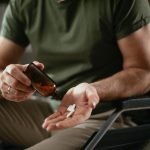Kidneys can show early signs of heart failure, study finds
Heart health is an imperative topic, considering that 1 in 5 individuals will encounter heart failure in their lifetime.
Now, an insightful research spearheaded by...
Scientists find new hope in lung cancer treatment
Imagine having a means to understand what’s happening in a person’s cancer situation without needing an invasive procedure – just a simple blood test.
This...
Scientists find links between stress, depression, and Alzheimer’s disease
In the intricacies of mental health and neurodegenerative diseases, researchers often find themselves entwining through the subtle threads that link emotional and cognitive wellbeing.
A...
Switching blood pressure pills may lead to better treatment, study finds
Imagine visiting a doctor, and you're handed a pill, with a promise that it should help manage your health issue - in this case,...
Low-dose aspirin may reduce diabetes risk by 15% in older people
Aspirin, commonly recognized for its pain-relieving and anti-inflammatory properties, has historically been considered a versatile agent in preventing cardiovascular events.
Recent research, to be discussed...
How drinking coffee can affect your kidney health
Scientists have always been curious about the world – and our bodies.
A team from the University of Toronto, with Ahmed El-Sohemy steering the research...
A lifelong series of heart problems turned her into a staunch advocate
As a young girl, Chrissy Gaffney endured occasional fevers and body aches that made her struggle to walk. Although the family doctor diagnosed her...
Common sleep pills may increase high blood pressure in older people
Sometimes, after a day of knitting, tending to roses, or perhaps enjoying a calm reading session, our dear older folks tuck into bed, hoping...
A cup of dark tea a day keeps diabetes away
Who doesn’t relish a warm, comforting cup of tea?
Beyond its soothing nature, new research suggests that dark tea may harbor notable health benefits, particularly...
Vaccination could prevent against long Covid symptoms
A recent study conducted by Mayo Clinic researchers has unveiled that receiving a COVID-19 vaccine not only curtails the risk of developing long-haul COVID...










